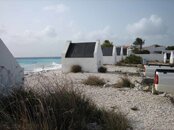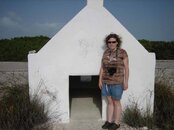drrich2
Contributor
So Why Bonaire?
-----1.) Curacao has conquerable shore diving, more sandy beaches and topside offerings, but it’s larger, more populous, more spread-out, reportedly has more spread out dive sites and lacks the convenient coast-hugging road …when I just want to dive, the Bonaire setup seems easier to plan and execute. Especially solo trips. Bring non-diving wife & daughter, the conversation changes.
-----2.) Grand Cayman has shore diving, but is mainly a boat destination, and there seems to be a bizarrely entrenched anti-solo shore diving mentality, to the extent some have thought it’s illegal (not true; Cayman Brac has some ‘unpoliced’ shore diving, and I know of one Grand Cayman op. who allows it from their dive boat with solo cert. and supporting gear). If you are individualistic (e.g.: resent being told what not to do when you deem it your own business) and love solo shore diving, that’s a problem.
-----3.) Of the destinations I noted, only Curacao shares the year round stable, warm water conditions and reliably calm seas (e.g.: below the hurricane belt). Unless bad weather prevents your plane from taking off to get there, you don’t have to worry about the weather in Bonaire (rare exception).
-----4.) Cocoview Dive Resort has many fans and a large house reef with a wreck! But Roatan isn’t a ‘roam a large coast’ shore diving destination, and read up on sand fleas!
-----5.) Key Largo is great…but the viz. wasn’t as good (maybe 50 feet?) when I was there, and the Florida Keys aren’t a shore diving destination.
-----6.) Cozumel rocks, and may be the most popular Caribbean dive destination, with great boat diving, limited shore diving, more big stuff, overall budget cost and good topside eats – but not everyone likes drift diving.
-----7.) Live-aboards are great, but don’t generally offer shore diving, some forbid solo diving, and you are ‘stuck on a boat’ (catered to hand and foot on a yacht in many cases…), not roaming an island.
A Little History
Please take a little time to visit 2 special shore dive sites, White Slave and Red Slave. Read the plaques and step inside a hut. African slaves were used to mine salt and were housed here during the work week. Think about what life was like for them, and what human beings did to others.





